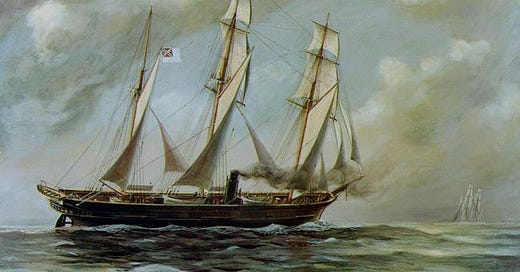A great debate between Tim Pool and Konstantin Kisin took place. Both gentlemen held to a prime Oxford decorum styled debate.
This debate may bore the hell out of most of you, but to me, it was total fun. Kisin does not think the US is facing a Civil War, but Pool insists the US is potentially on the brink or cusp of such a war. However, both men are handicapped by a poor understanding of English-Anglo-Saxon-Albion history.
Kisin admits his handicap, but Pool gets several facts wrong. First, secession is not illegal. The former colonies would not agree to such a Constitution if secession were prohibited, and it simply does not appear in the Constitution.
Pool also claims Lincoln is a great President. I flat-out disagree. Yes, he is an important President, but the actions he took were often too late or unwarranted. General Sherman is a war criminal by today’s standards. Also, Lincoln introduced proposals which still cause problems to this day. Also, Lincoln should have negotiated to reduce the Morrill Tariff Act which raised tariffs to 70 percent (https://en.wikipedia.org/wiki/Morrill_Tariff) but instead fully supported it. He wanted those duties, and expressly mentioned them in his First Inaugural Address (https://avalon.law.yale.edu/19th_century/lincoln1.asp).
In addition, while understanding many believe the US Civil War, more rightly named the War Between the States, was about slavery, this is a grandstanding myth. The 1860 Republican Platform form contained additions not found in the 1856 platform. Neither platform would abolish slavery or come close to doing so. The addition in 1860 was advocacy for protective tariffs which would hurt the Southern economy as it was heavily invested in cash crops, such as cotton and tobacco, which were exported to Britain and other countries. When secession started, the majority of slave states still remained in the Union. Those who seceded viewed the protective tariff as a means of ending slavery. With all the discussion of trade wars, everyone deserves a better understanding of how tariffs cause conflict.
I realize many of my readers cringe and shake their heads on my stance on this matter. But look up the history of the CCS Alabama (https://encyclopediaofalabama.org/article/css-alabama/) and the US claims against Britain (https://en.wikipedia.org/wiki/Alabama_Claims). This ship would not matter but for protective tariffs.
Generally, Pool won the debate. But he could have bolstered his arguments if he explained how Alexander Stephens, Jefferson Davis, and Sam Houston opposed secession, and were overcome by a chain of events. Yet, still, both men are stuck in a speculative game. At the same time, Kisin could have quoted George Washington and his Farewell Address, which expressed concerns about factionalism and its dangers while emphasizing an optimistic viewpoint point as to how America overcame it.




